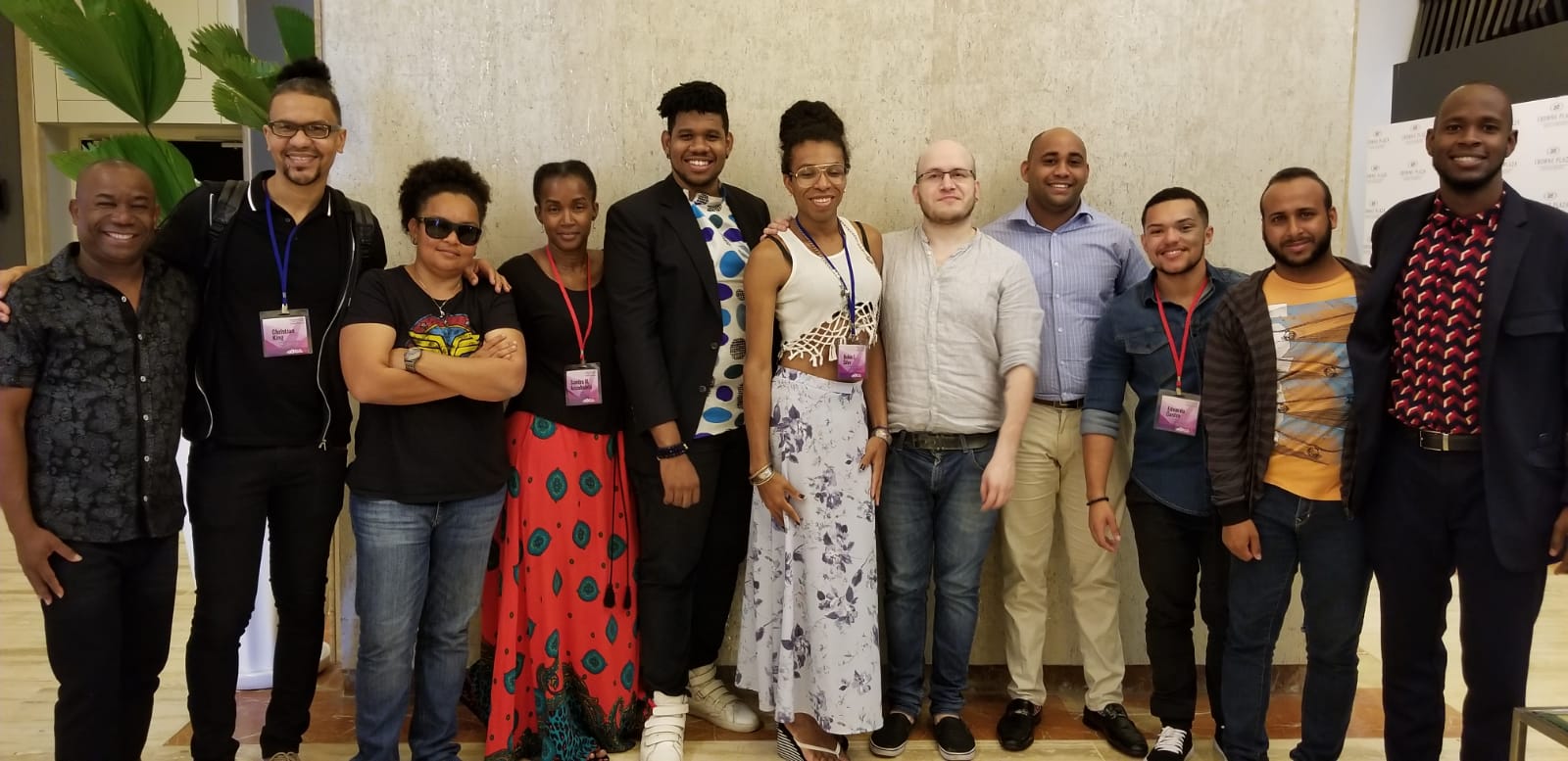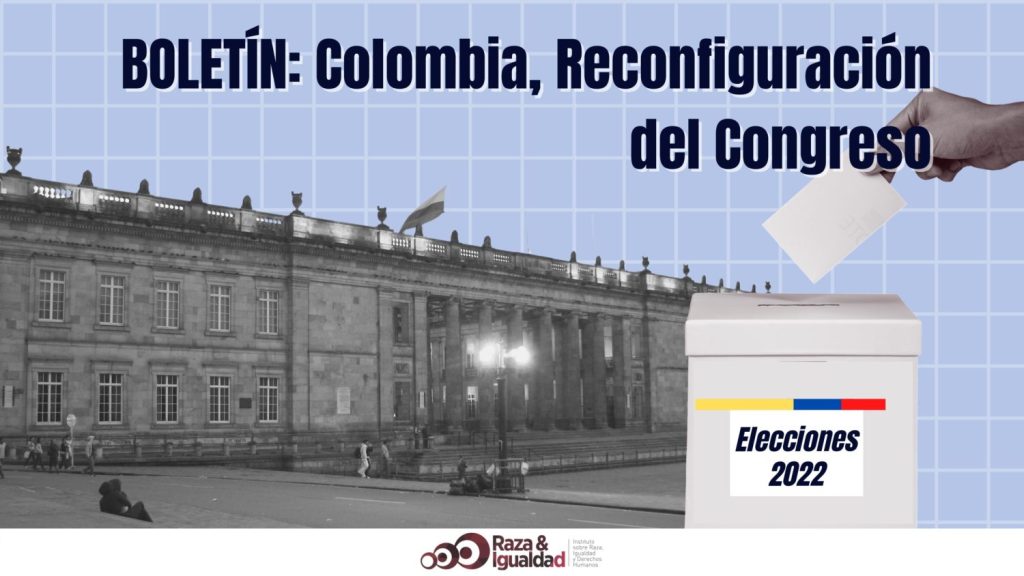Gender- and race-based micro-aggressions perpetrated against Afro-trans women
Washington, DC, February 12, 2019 – Within the framework of a series of training processes put forward by the International Institute on Race, Equality, and Human Rights (Race & Equality), the second encounter of the dialogue ‘Why Speak About Afro-LGBTI?’ was held on February 12, 2019 in the city of Santo Domingo in the Dominican […]

Washington, DC, February 12, 2019 – Within the framework of a series of training processes put forward by the International Institute on Race, Equality, and Human Rights (Race & Equality), the second encounter of the dialogue ‘Why Speak About Afro-LGBTI?’ was held on February 12, 2019 in the city of Santo Domingo in the Dominican Republic with more than 60 activists and human rights defenders participating, primarily Afro-LGBTI persons, from Colombia, Peru, Brazil, and the Dominican Republic who were convened by the organization Trans Siempre Amigas [Trans Always Friends] (TRANSSA).
This second dialogue space, moderated by Christian King of TRANSSA, began with a focus on the discrimination experienced by the Afro-trans activist Belén Zapata, a member of the Afro-Peruvian youth organization Ashanti, in the process of entering the city of Santo Domingo, in the Las Américas Airport.
The discrimination Belén confronted can be summarized by stating that after she cleared the legal immigration controls and was proceeding to exit the airport, an employee retained her passport without identifying himself or giving a reason for his action, forcing her to stand against a wall for around 40 minutes while being stared at by people in the airport. Afterward, she was led, together with a group of 10 others (most of whom were Afro-descendants), to other controls and scans in which she was repeatedly checked until [the employees] finally concluded she was not carrying drugs. Belén received no response to her questions as to the reasons for this procedure; only by the end did she herself deduce she was being submitted to a drug-check. She was informed that it was a routine check performed on new visitors to the country.
#AfroLGBTI -🎙️ #VocesDeDenuncia - Les invitamos a escuchar la denuncia de Belén de @ashantiperu lideresa afroperuana trans sometida a actos arbitrarios por parte de autoridades aeroportuarias en #RD - @MigracionRDcom @MIREXRD @GMontalvoFranco @GoDomRep - Escucha su denuncia 👇🏿 pic.twitter.com/vQPMm4GfGm
— Race and Equality (@raceandequality) February 12, 2019
The entire incident experienced by Belén did not last longer than an hour. The situation itself did not generate any legal consequences against her, no physical violence was employed, and furthermore, the procedures apparently were being justified by a confusing argument of drug-control and standard procedures employed with new visitors to the country. The responsible parties? After Race & Equality issued a communiqué and tweet denouncing the situation, Aerodom (the entity that operates the Dominican Republic’s airports) indicated that it is a private entity and that other entities were in fact responsible. Conclusion? There is no specific entity that can respond to this situation.
Within the framework of the roundtable conversation, the participants reflected on the normalization of this type of aggression. Although its effects entail several violations – such as the violation of due process, unjustified restriction of movement, and arbitrary abuse of authority – we view these situations as minor because they do not entail extremely grave physical abuse. In this sense, we are dealing with what is known as ‘micro-aggressions’ [‘micro-violencias’] that become normalized by the victims, who do not view them as grave or simply because they have no expectation of receiving a response when they denounce them to the authorities.

Belén’s courage was obvious during the conversation as she spoke about this situation, given that some of the attendees at the event had talked about similar situations they had experienced, whether due to their race, sexual orientation, and/or gender identity. Likewise, the gravity of these incidents was discussed, when the lack of identification from officials and arbitrary nature of the procedures hinders the pinpointing of specific responsibility. In addition, the group questioned the airport authorities’ lack of coordinated work strategies in this case which, as in other cases, is the result of viewing the response to situations of structural discrimination as being the responsibility of others rather than everyone’s responsibility.
Another situation narrated by an Afro-trans participant illustrated the limitations of her access to healthcare as a trans woman. The participant described a situation in which she was the object of mockery when she asked to be seen by a urologist for problems associated with her prostate. For this simple fact she was ridiculed and initially refused copies of the medical exams that had been performed on her, though she was finally able to get them due to her insistence.
Again, while she had access to medical attention and the situation can be described as a simple matter of incorrect attention provided to the user, this type of aggression that can appear to be ‘micro’ in fact has a profound impact on trans persons’ confidence in medical institutions and in this case, that of Afro-trans [persons]. This is a situation in which medical services become tortuous and health or even life itself are put at risk when the refusal of services leads to individuals deciding on their own to stop seeking adequate medical attention.
These two simple reflections on the aggressions visited upon Afro-trans women, while they deviated us from the classic discussions regarding the grave violence committed against the Afro, trans, and LGBTI populations, placed front and center the fact that oftentimes the root cause of the grave violations experienced by these populations is found in daily life, in the degeneration of a service or irregular procedures which, while not leaving permanent traces, have the effect, drop by drop, of wearing away Afro-trans persons’ human dignity and integrity.
Thanks to the support of the Bureau of Democracy, Human Rights, and Labor of the United States Department of State, Race & Equality was able to sponsor the event and facilitate the attendance of the international invitees.

